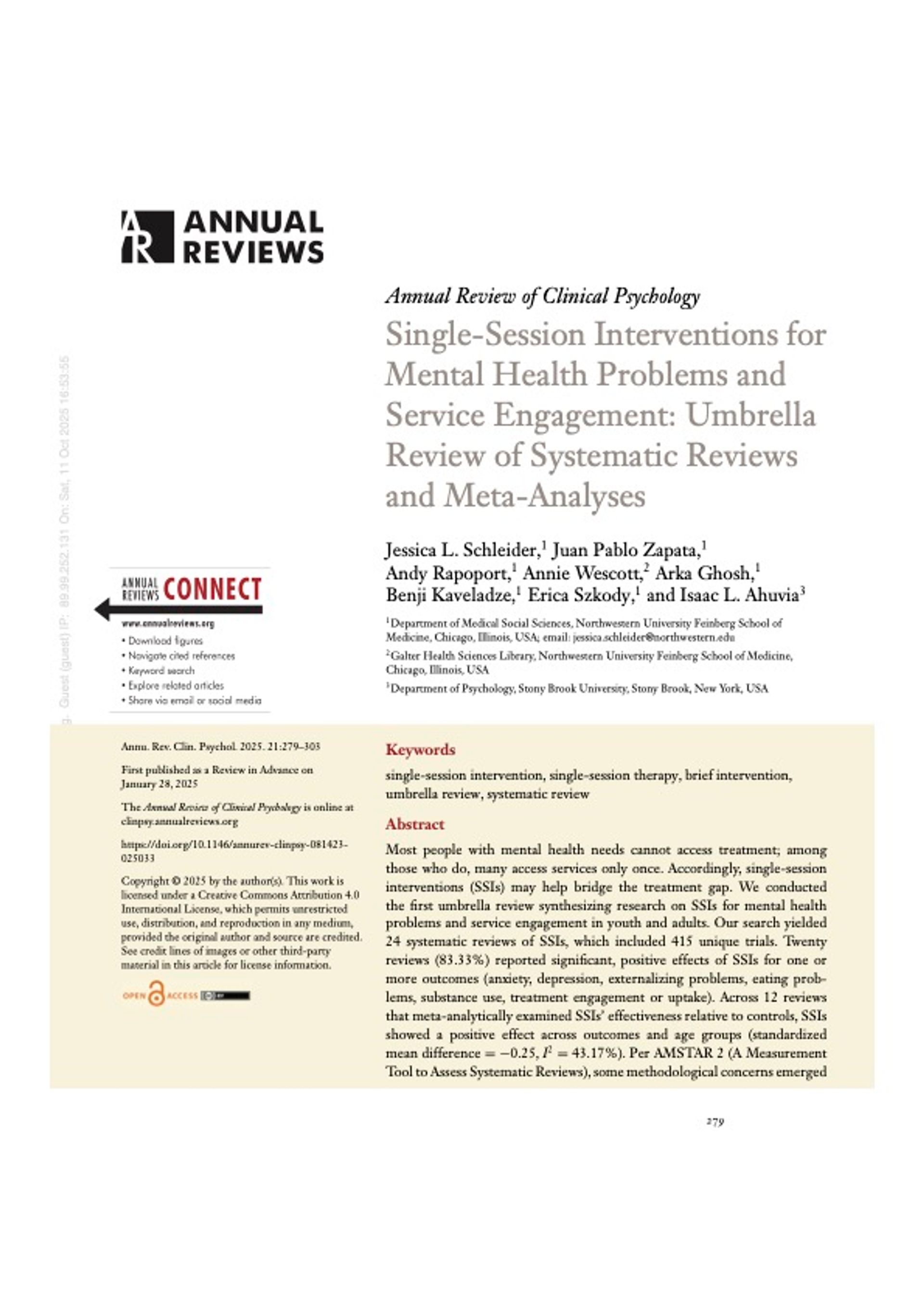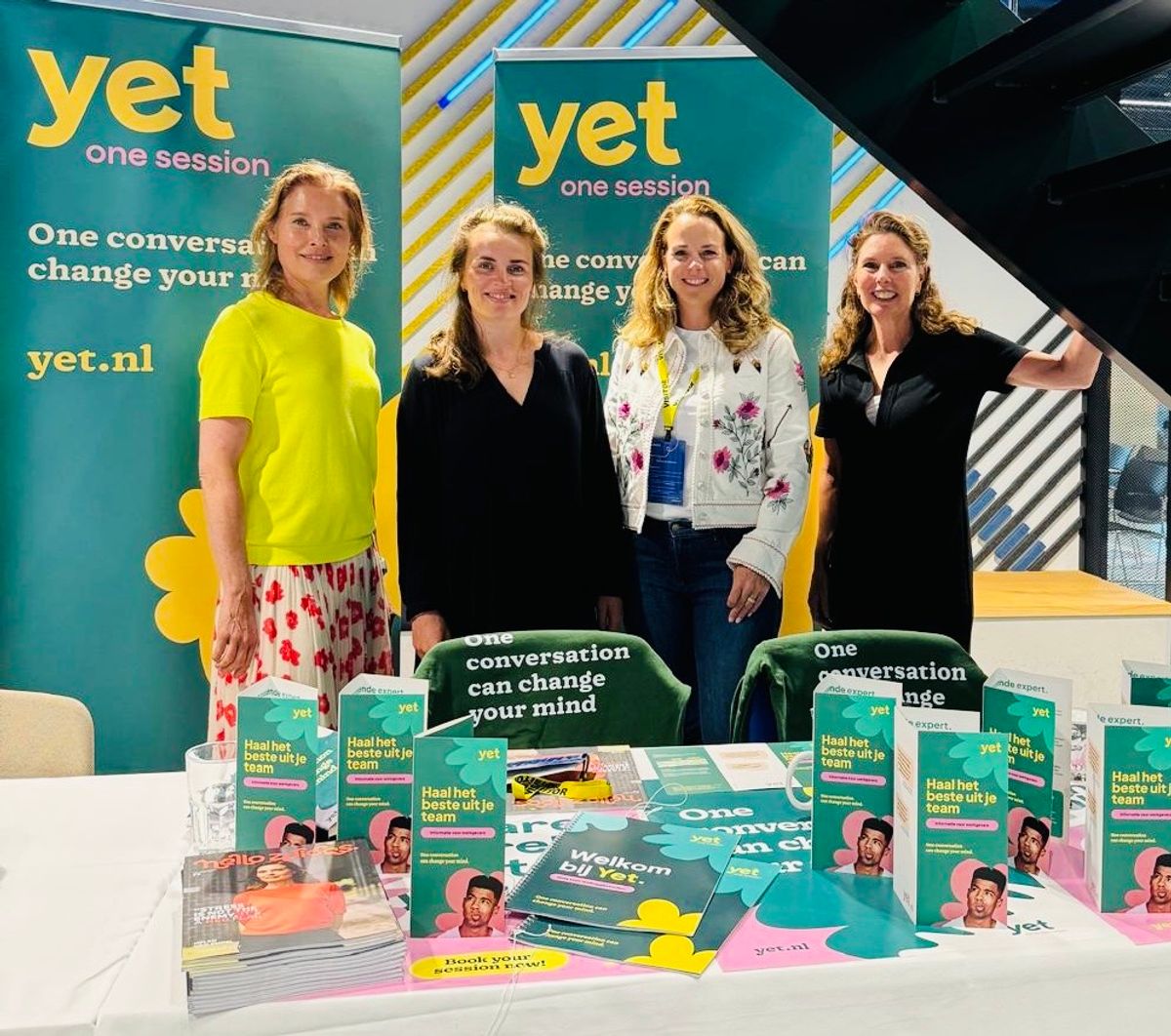Single Session Therapy (SST) is een evidence based methode om mensen in één, snel beschikbaar gesprek vooruit te helpen met wat er op dat moment speelt. Yet introduceert deze methode in Nederland.
We vertellen je graag over de achtergrond en het onderzoek naar deze methode.
Benieuwd naar onze methode? Bekijk deze korte video van 6 minuten!

Één gesprek als keerpunt
Keerpunten zijn een natuurlijk deel van het leven. Of ze nu groot en ingrijpend zijn of klein en alledaags, ze kunnen leiden tot nieuwe acties en ervaringen die een positieve beweging in gang zetten.
Waarom één keer
Single Session Therapy ontstond in de jaren ’80 uit een belangrijke observatie: veel mensen komen maar één keer voor hulp — ook als er een heel traject is gepland — en zijn toch tevreden met het resultaat. Wereldwijd is één sessie de meestvoorkomende lengte van een therapie ’traject’. Dit riep de vraag op: hoe halen we het maximale uit dat ene gesprek?

De vier uitgangspunten
Vanuit daaruit is SST ontwikkeld en onderzocht. Een manier van werken die uitgaat van vier kernprincipes:
- Verandering in het moment is mogelijk
- Elke sessie staat op zichzelf
- De cliënt staat centraal
- Focus op de huidige situatie
Elke sessie wordt benaderd alsof het de laatste zou kunnen zijn, en is snel beschikbaar en laagdrempelig — zodat hulp altijd beschikbaar is wanneer dat nodig is.
Waarom werkt het?
SST gaat niet over het snel vinden van praktische oplossingen binnen hetzelfde perspectief. Het risico daarvan is herhaling: blijven zoeken naar varianten van wat al geprobeerd is.
De kracht zit juist in het loskomen van die verhaallijn — in het creëren van een verschuiving in perspectief. Dat opent de deur naar nieuwe mogelijkheden, met het vertrouwen dat verandering in het moment mogelijk is.
De nadruk ligt op mogelijkheden, keuzes en zelfregie. Het doel is niet om alle problemen in één keer op te lossen, of een heel therapietraject in één sessie te proppen. Maar om een verandering in gang te zetten — een effectieve interventie, precies op het moment dat het nodig is.
Dat maakt het gesprek direct waardevol — of het nu het eerste of het enige is.
SST helpt om:
- gedachten en gevoelens te ordenen
- te focussen op wat écht belangrijk is
- inzicht te krijgen in wat nú nodig is
- een ander perspectief te ontdekken
- het eigen oplossend vermogen te versterken

Wetenschappelijke basis
Begin 2025 verscheen de eerste grote overzichtsstudie naar Single Session Interventions (SSI), onder leiding van psycholoog Jessica Schleider (Northwestern University, VS). De publicatie bundelt uitkomsten van 415 onderzoeken, verspreid over 24 systematische reviews.
De resultaten
SST laat in het merendeel van de studies positieve effecten zien bij een breed spectrum aan klachten — waaronder angststoornissen, depressie, eetstoornissen, problematisch middelengebruik en motivatieproblemen. Niet alleen direct na de sessie, maar vaak ook weken tot jaren later.
Ook internationaal toonaangevende wetenschappers onderschrijven de relevantie en kwaliteit van het onderzoek. Pim Cuijpers, emeritus hoogleraar klinische psychologie aan de VU Amsterdam en een van ’s werelds meest vooraanstaande psychotherapieonderzoekers, noemde het “een mooi overzicht”. Arnold van Emmerik, universitair docent klinische psychologie aan de UvA, oordeelde de claims overtuigend en realistisch.
Realistische verwachtingen
Voor veel mensen zal één sessie niet genoeg zijn. Maar veel anderen kunnen er wel degelijk profijt van hebben. Het gaat erom verwachtingen goed te managen en duidelijk te zijn over doelen en mogelijkheden. En daar sluit SST op aan: het is geen vervanging van langdurige therapie, maar een waardevolle aanvulling.

Hoe werkt het bij Yet?
Alle professionals bij Yet zijn getraind in de SST-aanpak. Ze hebben jarenlange ervaring als psycholoog, coach of counselor.
Elke sessie wordt zorgvuldig afgestemd op de persoon en het moment. Geen intake, geen wachtlijst, geen diagnose. Alleen wat nu nodig is.
Deelnemers kiezen zelf het moment, het onderwerp en de vorm. Yet zorgt voor de juiste gesprekspartner.
Organisaties bepalen zelf hoe ze Yet inzetten: als onderdeel van hun preventiebeleid, als extra vangnet of als directe interventie.
SST in het kort
De uitgangspunten
- Eén gesprek kan een keerpunt zijn
- Verandering gebeurt in het moment
- De cliënt houdt de regie
- Focus op het hier en nu, niet op een lang traject
- Versterking van eigen kracht en vaardigheden
Werkwijze in de sessie
- Ordenen van gedachten en gevoelens
- Creëren van een verschuiving in perspectief
- Ontdekken van nieuwe mogelijkheden
- Richten op concrete vervolgstappen
- Versterken eigen oplossend vermogen
Effectiviteit
- Sluit aan bij motivatie en urgentie
- Direct beschikbaar zonder wachtlijst
- Wetenschappelijk onderbouwd
- Maakt actief, niet afhankelijk
- Voor veel mensen is één sessie voldoende

Niet alles in één sessie — wel alles uit één sessie
SST is geen quick fix. Het is een serieuze, respectvolle manier van werken met grote impact in korte tijd.
We beloven geen wonderen, maar we geloven wel in betekenisvolle momenten en keerpunten. En soms is één gesprek precies wat iemand nodig heeft om zelf verder te kunnen.
Geïnteresseerd in SST voor jouw organisatie?
Yet geeft al je medewerkers toegang tot wetenschappelijk onderbouwde ondersteuning — precies op het moment dat het nodig is. We overleggen graag hoe we samen kunnen werken.